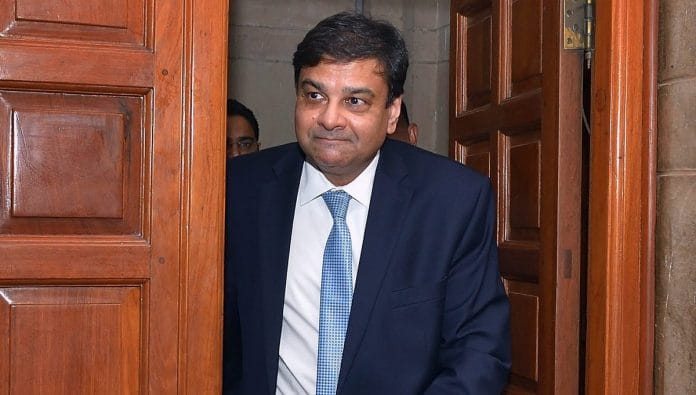Mumbai: Moves to dilute a new bankruptcy law caused disagreements between Prime Minister Narendra Modi’s government and the central bank, according to former Reserve Bank of India Governor Urjit Patel.
The rift centered around a February 2018 circular issued by the RBI, which forced banks to immediately classify borrowers as defaulters when they delayed repayments, and which barred defaulting company founders from trying to buy back their firms during insolvency auctions. In a book released Friday, Patel — who headed the RBI between September 2016 and his unexpected resignation in December 2018 — said the government seemed to lose enthusiasm for the legislation in the middle of the year he left the central bank.
“Instead of buttressing and future-proofing the gains thus far, an atmosphere to go easy on the pedal ensued,” Patel wrote. “Until then, for the most part, the finance minister and I were on the same page, with frequent conversations on enhancing the landmark legislation’s operational efficiency.”
The government was probably of the view that the “deterrence effect — ‘future defaulters beware, you may lose your business’” had been achieved, Patel said. He adds that “there were requests for rolling back the February circular” and “a canard was spread” to discredit the rules, including by incorrectly suggesting that small businesses would suffer disproportionately.
Patel’s comments offer a first glimpse into a tussle between the RBI and the government, which led eventually to a U-turn that stunned the Indian business world when the Supreme Court last year struck down the RBI’s February circular. Those subsequent changes in the bankruptcy rules risk reversing gains from the efforts to clean one of the world’s largest bad-loan piles, Patel warned in his book.-Bloomberg
Also read: How home-makers, masons & painters are driving Pune’s auto hub out of lockdown losses







Rbi is most important organisation of our country and definitely you are chaired to justify the work done . The moral of person to hold dignity of post and remember your are known in future through negatives or positives of policy initiated by you.
Modiji has been touting IBC as a great achievement to address issue of bad debts. great indeed. cat is out of the bag. more than genuine concerns , dilutions and changes were effectively to shield crony corporates and give them a window for escape. the fact that all lawyers dropped out one day before hearing in supreme court speaks volume about the intent and objective of this move. farcical
Unlike the general perception it is not “obey” orders in the Defence forces. The term is “follow” orders. In the process of formulation of a plan inputs are taken from everyone including the junior commanders. There is a brainstorming session on the plan. Finally a plan is adopted. It is then mandatory that every one works towards the final plan. The decision is promulgated by the senior most commander, who has the final say, in the situation. Hence the term “follow” orders and Not “obey” orders. In the defence everyone has a right to refuse to follow unlawful order as well.
In the circumstance it is a bit bewildering that a RBI Governor had to resign due to dissonance. How can an individual assume that he knows more than somebody else? Should not he Government functionary execute what the Government requires unless it is an unlawful order. If it is an unlawful order the prude thing would be to just refuse to execute the order and not resign.
Can a senior functionary succumb to canards? Just asking.